Films, in all of their forms, have taught audiences that the future may not be as happy and joyful as they expected. When was the last time a futuristic film showed a version of the future you wanted to actually live in? Earth has been scorched countless times, and even the sun has suffered from humankind's ambitious greed. Dystopias are hard to imagine, but the only way they can be visualized is through film. And most of the time, the fictional future they show is scary.
Mostly associated with science fiction, dystopian films can be grim reflections of a cataclysm, or they can just show the consequences of reckless human behavior and ways of thinking. The future is so dark that it only seems natural to associate dystopian cinema with horror. It could be zombies, aliens, and yes, humans (we can also be the "monsters" that wreak havoc on the only home we got). The following is a list of horror movies that do a great job of depicting the dystopias we don't want to live through.
10 Battle Royale (2000)
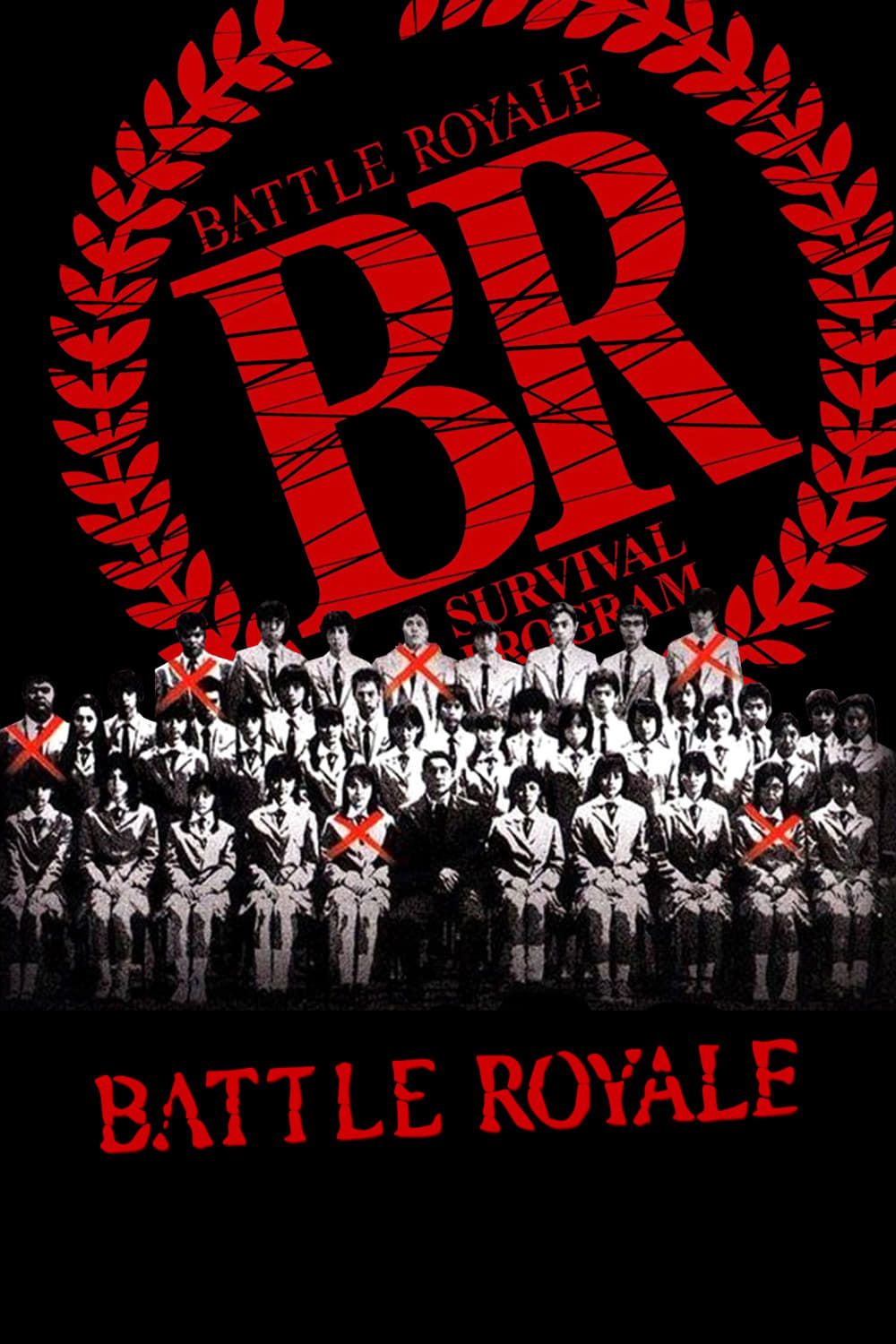
Battle royale
- Release Date
- December 16, 2000
- Director
- Kinji Fukasaku
- Cast
- Tatsuya Fujiwara, Aki Maeda, Tarô Yamamoto, Takeshi Kitano, Chiaki Kuriyama, Sosuke Takaoka
- Rating
- R
- Main Genre
- Adventure
In Battle Royale, Japan is being ruled by a totalitarian government. A recession (and lack of reasoning) has forced them to try out a new method for educating teenagers who are prone to misbehaving. The story is told from the perspective of a group of students who seemingly fall asleep while going on a class trip. When they wake up, they realize they've been taken to a remote island where they're expected to play a game. For a couple of days, they're expected to fight to death in an annual event known as Battle Royale.
Why Battle Royale Makes the List
Battle Royale is a very well-written and cleverly adapted (from the homonymous novel) dystopian horror film, whose impact in today's genre cinema is hard to deny. It always maintains the cynicism aspect of its plot and never fully turns into a basic action thriller where young people kill each other in creative ways. It digs deep into the psychology of victims who were discarded by a system that simply didn't believe in them anymore, making it especially horrific for younger audiences. What's scarier than being young and being considered trash by your own country?
It was so popular at the time, that even a genre was created out of it. The name? Battle Royale, of course, and very popular dystopian films like The Hunger Games and The Purge follow the specific rules of that genre.
9 28 Days Later (2002)
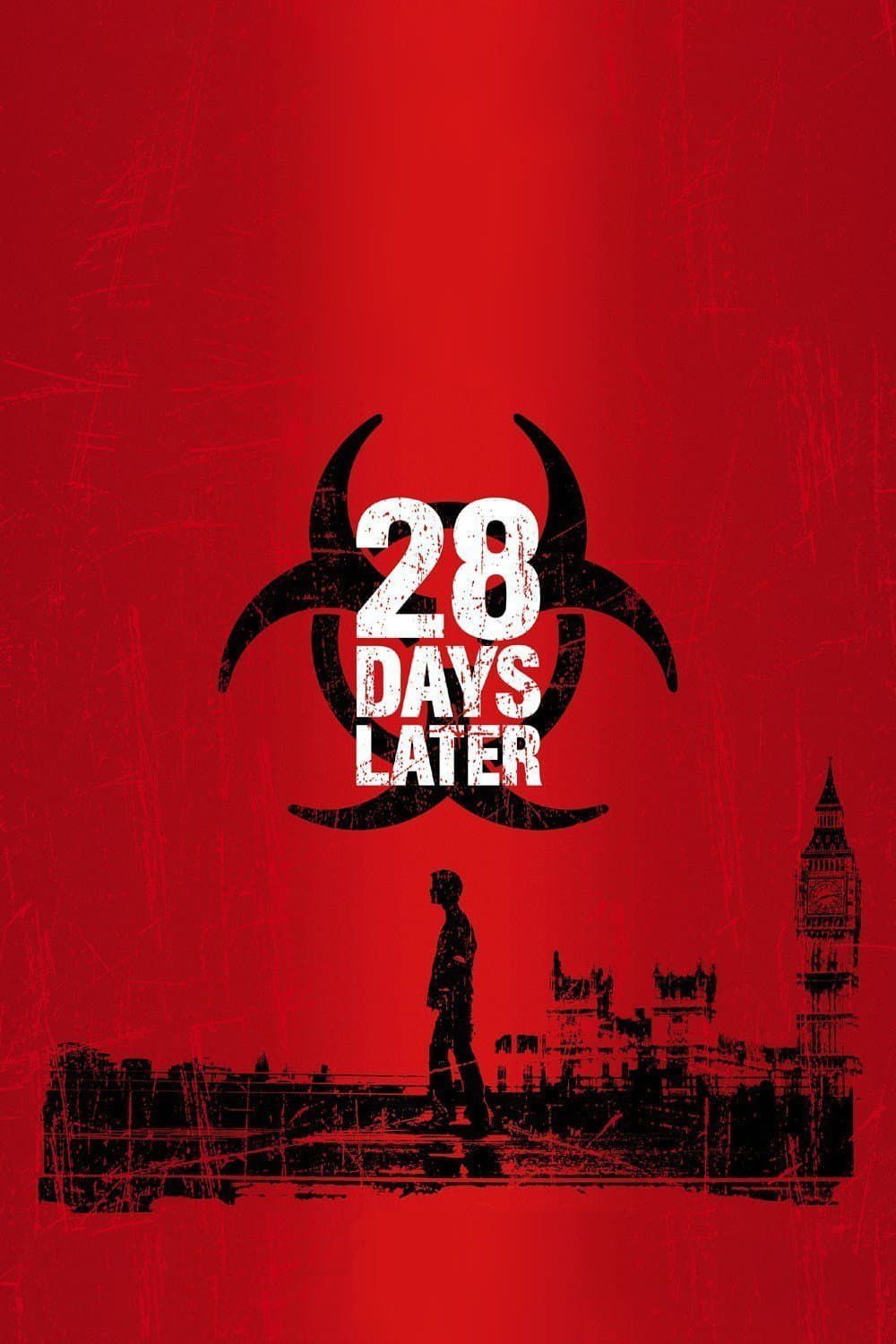
28 Days Later
- Release Date
- October 31, 2002
- Director
- Danny Boyle
- Cast
- Alex Palmer, Bindu De Stoppani, Jukka Hiltunen, David Schneider, Cillian Murphy, Toby Sedgwick
- Rating
- R
- Main Genre
- Horror
Danny Boyle's 28 Days Laterjumps straight to the beginning of the zombie apocalypse, when a young man wakes up after being in a coma in a deserted hospital. There are no traces of human life in all of London (this is the film that features a man standing alone on the completely empty London Bridge), and Jim starts walking somewhere. At some point, he finds more survivors, but in this dystopian horror film, it's basically everyone for themselves.
Why 28 Days Later Makes the List
Without question, this is one of the best zombie films ever made. The dystopian zombie film feels very realistic and gloomy, and much of that we owe to Boyle's genius decision to shoot portions of the film in digital video. English actors Cillian Murphy, Naomie Harris, and Brendan Gleeson lead the film and incorporate the dramatic counterweight that sometimes makes horror much more serious than expected. In the current era of so-called "elevated horror," films like 28 Days Later should be considered "elevated zombie films."
8 Children of Men (2006)
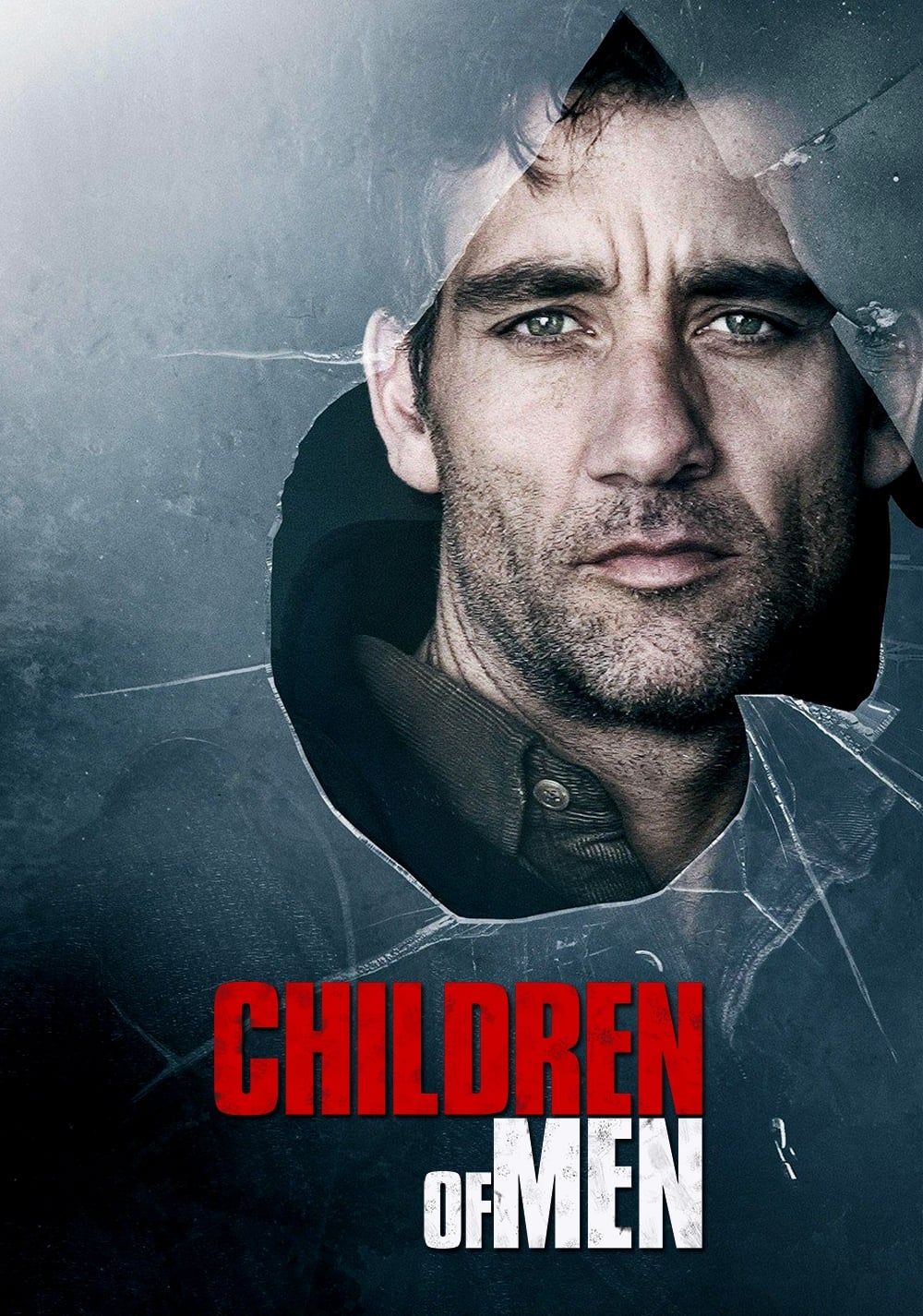
Children of Men
- Release Date
- September 19, 2006
- Director
- Alfonso Cuarón
- Cast
- Juan Gabriel Yacuzzi, Mishal Husain, Rob Curling, Jon Chevalier, Rita Davies, Kim Fenton
- Rating
- R
- Main Genre
- Adventure
Children of Men, by award-winning Mexican director Alfonso Cuarón, is a dystopian science fiction thriller that's scary enough to enter the depths of horror. In the film, Theo still grieves over the loss of his child during an influenza pandemic that scarred the world beyond recognition. The year is 2027, and humans aren't able to reproduce. The species has become infertile. First-world countries didn't escape the threat, so when Theo finds a refugee called Kee who's pregnant, he takes it upon himself to help her escape and bring back hope to humankind.
Why Children of Men Makes the List
Cuarón doesn't limit himself to showing a darkened version of a possible dystopia for the audience to witness. Instead, he makes a film about survivors and their broken minds, who somehow hold a glimmer of kindness. However, this doesn't mean that the director avoids a horrific interpretation of human desperation. In this dystopian society, there aren't heroes or villains, nor good or bad people. Humans are just a consequence of something they couldn't control at first.
This is Cuarón's closest relationship with full-blown horror, as he uses an ecocide to show depressed monsters consuming themselves into extinction. Children of Men is also one of the few films on this list to be recognized by the Academy, who nominated it for Best Cinematography (a scene inside a van will confirm why it deserved to win), Best Film Editing, and Best Adapted Screenplay. The film is considered to be one of the best dystopian films ever made.
7 The Omega Man (1971)
One of the several adaptations of the novel I Am Legend by Richard Matheson, The Omega Man is a solid dystopian horror film. Charlton Heston plays Robert Neville, a former U.S. Army scientist who's left all alone in a desert country where humans have been exterminated by biological warfare.
Neville's knowledge has allowed him to find a cure, and now he roams Los Angeles as the sole survivor of the apocalypse. Only in this version of the story, the antagonists aren't mindless vampire zombies. They are called the Family, and they're mutants that can only walk at night. When they capture Neville, they show their true intention to be the master species in this dystopian future.
Why The Omega Man Makes the List
Boris Sagal's film is an exciting variation of the novel by Matheson (who didn't like what they did to his story) that puts the classic character Robert Neville in front of well-portrayed sentient monsters that are also very scary, making the film much more akin to horror. Sure, their intentions aren't really oriented towards their future on Earth, but within the confines of dystopian film tropes, we can't help but celebrate the twist on Matheson's literary classic.
6 Dark City (1998)
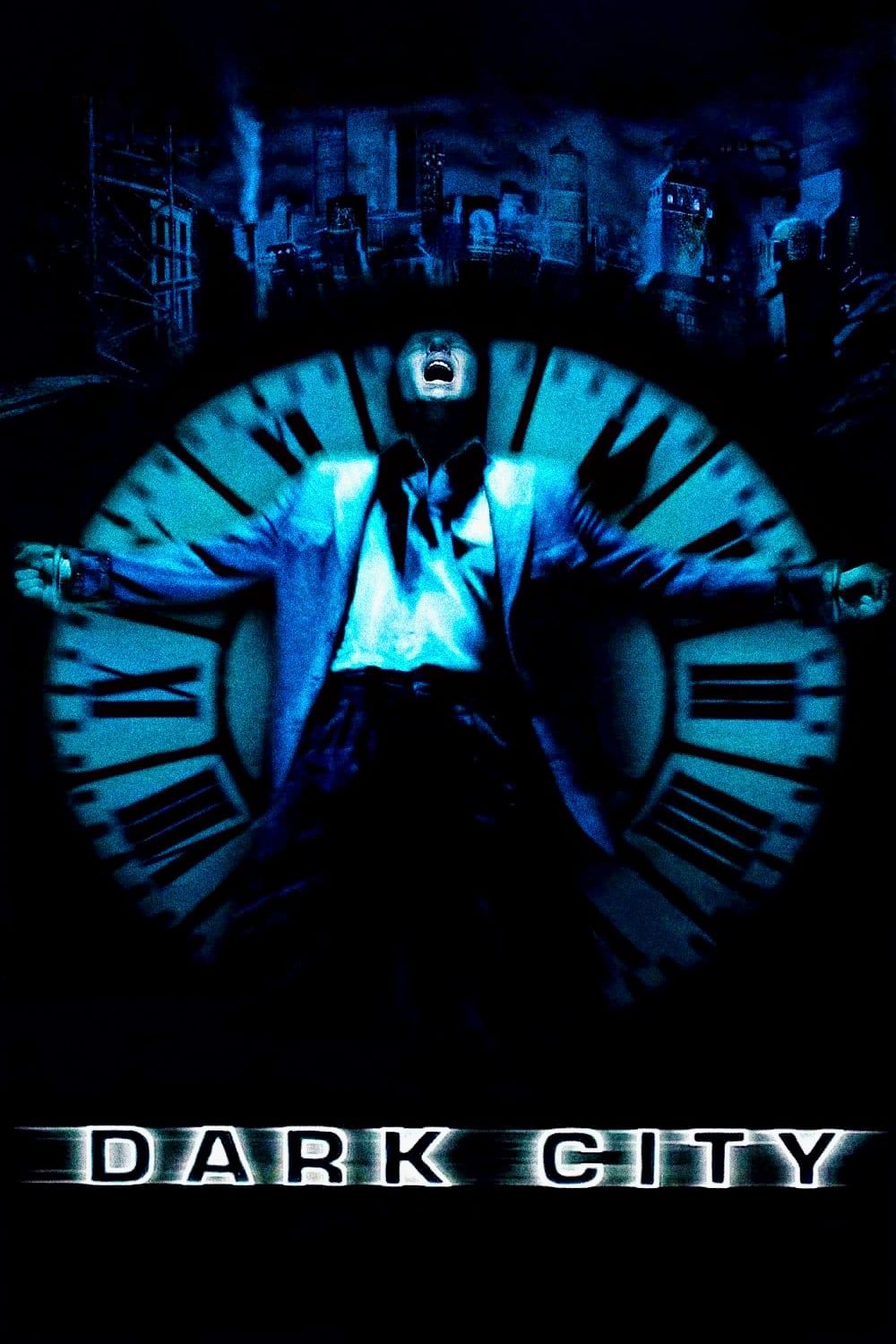
Dark City
- Release Date
- February 27, 1998
- Director
- Alex Proyas
- Cast
- Rufus Sewell, William Hurt, Kiefer Sutherland, Jennifer Connelly, Richard O'Brien, Ian Richardson
- Rating
- R
- Main Genre
- Mystery
Alex Proyas' horror sci-fi classic Dark City is a brilliant '90s cult film that we should care more about. It's very well-written and features a very underrated movie twist that doesn't usually show up in lists of "best movie twists." The story is about John Murdoch, an amnesiac man who gets accused of murder in a city where the sun never rises. Why? It's actually a world controlled by strange alien-like beings that "move" the city at their will. No, this is not the twist. There is one more and it's mind-blowing.
Why Dark City Makes the List
The dystopian aspect of Dark City is cleverly devised in the third act when it's inevitable that a final reveal will take place. It's very clear that the technology is futuristic, or at least, it's other-worldly. But regardless, Dark City is also a beautiful rendition of the science fiction neo-noir subgenre, with incredible visuals and a general aesthetic that feels original and logical. Of course, it all makes sense when answers are given in the last minutes of the film's running time. World-famous critic Roger Ebert considered it equally stunning to classics like 2001: A Space Odyssey.
5 Testament (1983)
Testament is the only film on this list that, by standards, couldn't be considered a genre film. Instead, as the first 15 minutes show, it's a drama without any of the tropes you would associate with horror. However, tragedy strikes. In Testament, a small community suffers a nuclear attack without warning, and the film turns into a horrific rendering of "what would happen if..." It's part of the catalog of "nuclear" films that made good use of the war-related panic of the '80s.
Why Testament Makes the List
This is not a generalized depiction of a crisis. Testament is told from the perspective of Carol (Jane Alexander in an Oscar-nominated performance), a mother and wife who finds herself living in a chaotic, dystopian America where survival just isn't possible. Lives around her simply fade away, including those of her children. The film smoothly sails into horror when each scene becomes a step deeper into a hopeless future where humankind becomes a mere product of coincidence and chance. This is easily the saddest film on this list, which makes it even weirder that it was produced for a PBS series.
4 Akira (1988)
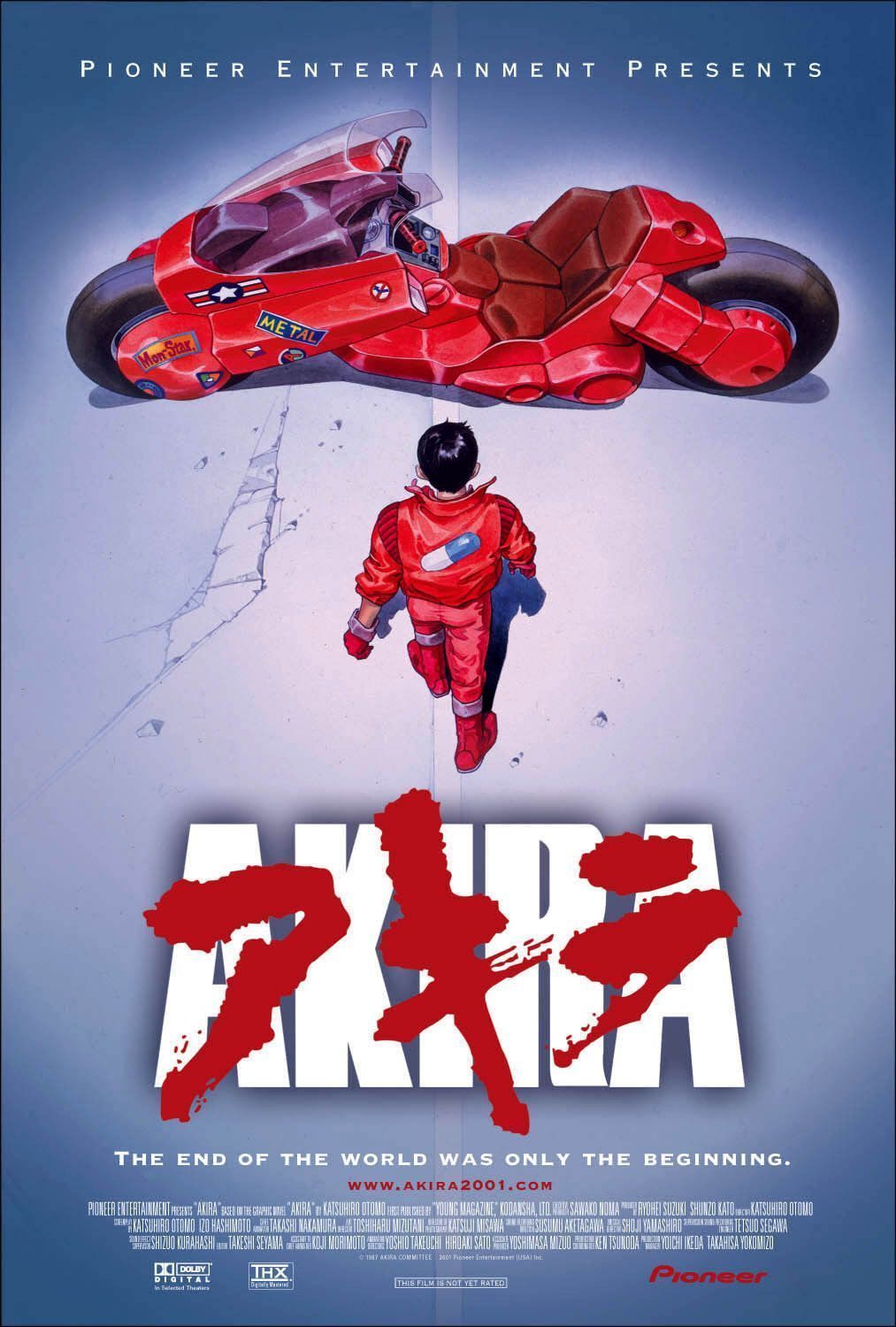
Akira
- Release Date
- June 28, 1991
- Director
- Katsuhiro Otomo
- Cast
- Mitsuo Iwata, Nozomu Sasaki, Mami Koyama, Tesshô Genda
- Rating
- R
- Main Genre
- Animation
Without question, the greatest anime film of all time. The 1988 Japanese film Akira tells the story of Neo-Tokyo in 2019, where Shōtarō Kaneda is a young and rebellious teenager who leads a biker gang in a metropolis that's ridden with corruption, gang violence, and totalitarian politicians. After a motorcycle accident, Kaneda's friend Tetsuo Shima acquires telekinetic powers and subjects the whole city to chaos. Kaneda, of course, takes it upon himself to save the world.
Why Akira Makes the List
Many genres fused into an unforgettable cyberpunk epic. There's science fiction, horror, adventure, and action blended into a film with a storyline that seems convoluted but eventually makes sense considering the chaotic way the film starts. The animation style is innovative and noteworthy, but it's the story that keeps everyone hooked from the beginning: It's a great depiction of endless power in the hands of an emotional being.
3 A Quiet Place (2018)
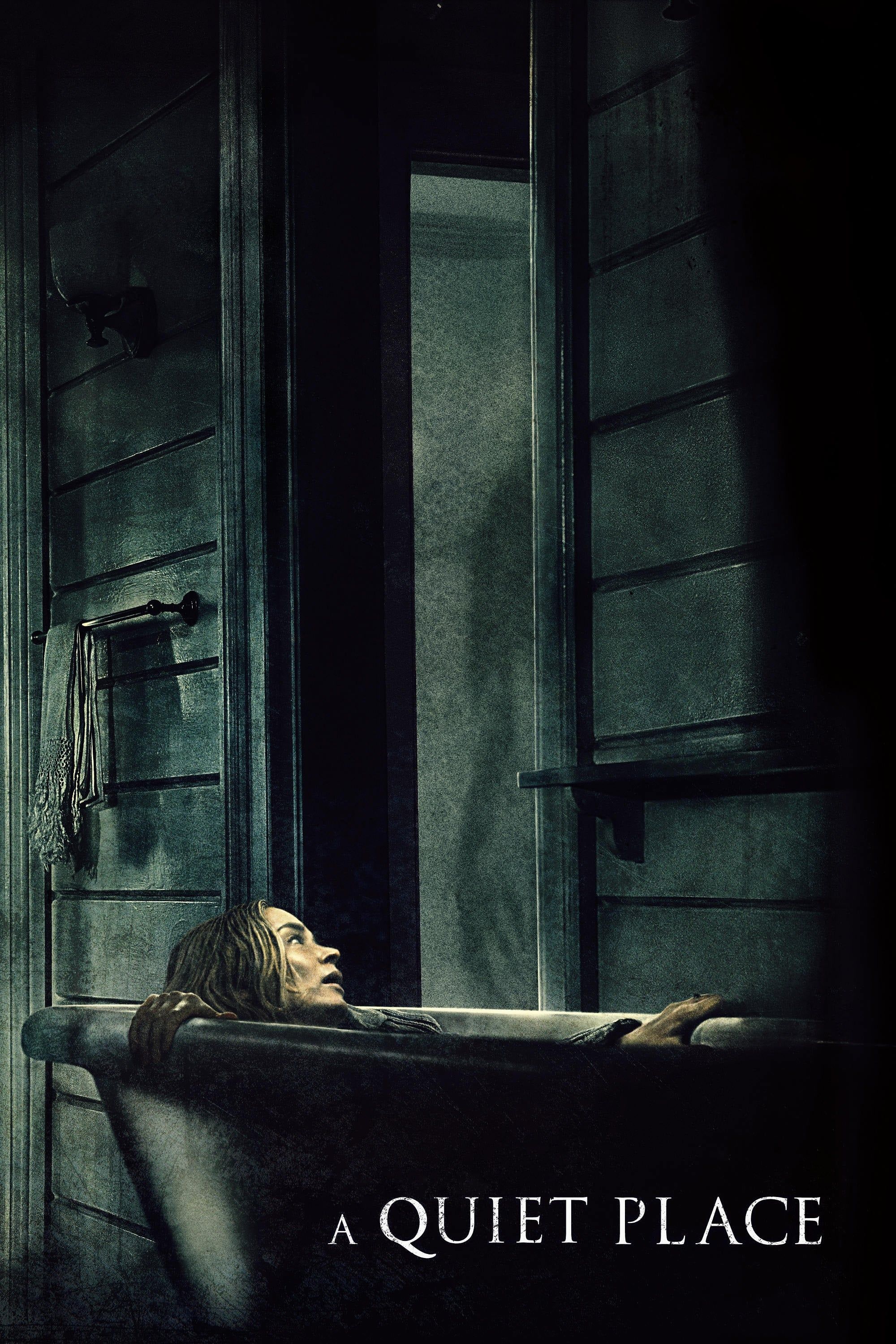
A Quiet Place
- Release Date
- April 3, 2018
- Director
- John Krasinski
- Cast
- Emily Blunt, John Krasinski, Millie Simmonds, Noah Jupe, Cade Woodward, Leon Russom
- Rating
- PG-13
- Main Genre
- Horror
Actor John Krasinski's impressive horror debut, A Quiet Place, tells the story of a family forced to hide in complete silence. Humans are now the prey on Earth, hunted down by huge aliens that are ultra-sensitive to sound and move faster than any vehicle or spaceship. The Abbotts are survivors most of all and will do their very best to keep their sanity while having to live in absolute silence. Luckily, they also, unknowingly at first, hold the key to their capacity to fight the horrendous monsters from outer space.
Why A Quiet Place Makes the List
This brilliant dystopian horror film shows a deserted Earth where humans emerge in complete silence only when it's completely necessary. It's stressful and tense, masterfully executed by a director who understands the genre, and it counts as the best theater experience audiences had ever had in 2018, when it was released. Viewers are mostly fascinated with scary cinematic experiences. It's the reason why horror is as popular as it is. Fortunately, A Quiet Place compiles the very best of horror elements to make for a fantastic film with a future we don't want to ever reach.
2 Videodrome (1983)
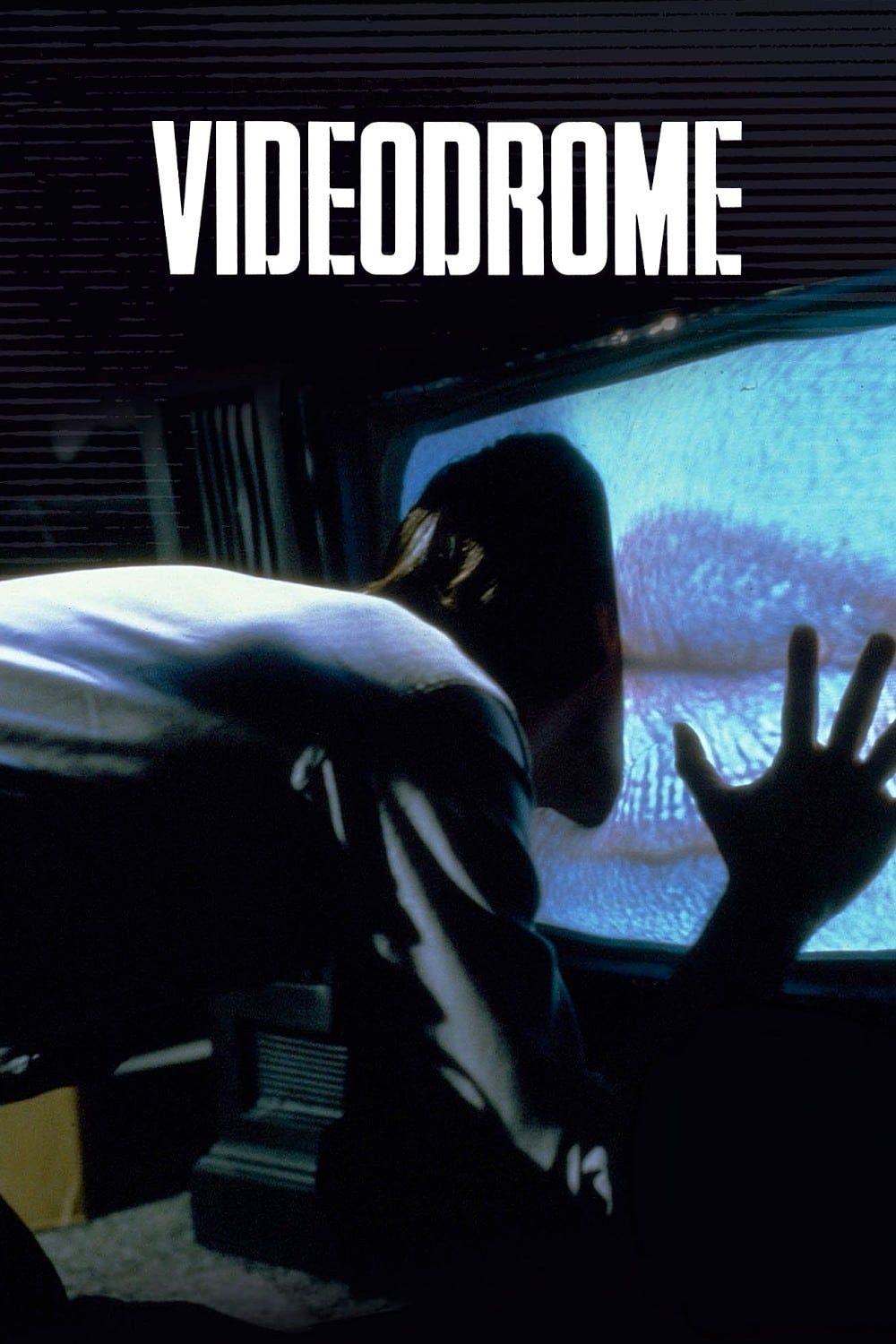
Videodrome
- Release Date
- February 4, 1983
- Director
- David Cronenberg
- Cast
- James Woods, Sonja Smits, Deborah Harry, Peter Dvorsky, Leslie Carlson, Jack Creley
- Rating
- R
- Main Genre
- Horror
Videodrome is a cult film directed by body horror specialist David Cronenberg that depicts the absolutely worst version of a future society, and it's undoubtedly one of the director's best films. When Max Renn, the president of a UHF station, comes upon a strange broadcast, he decides to look for the source. Not because he intends to compete against it, but because he becomes fascinated with the content: snuff films. Renn decides to include the content in his own station without knowing he's participating in a mind-control scheme created by a very large corporation.
Why Videodrome Makes the List
What is it about the dystopian future that makes humans prone to mind manipulation? Perhaps the answer lies in our own reality when we depend uncontrollably on social media, technology, and dumb entertainment. Videodrome takes one step further into the dark version of this theory about the future, something the director usually does in his other films (his recent film Crimes of the Future follows up on that theme).
Cronenberg sees modern society as a consequence of rotten entertainment, and in his depictions of the future, the characteristics of "body horror" are expressions of the inevitable digestion of questionable entertainment. Videodrome is a very interesting Cronenberg film through which the director comments on the violence and sexual innuendos that television introduced as inherent entertainment elements when suddenly every household owned a TV set.
1 New Order (2020)
The 2020 film by Michel Franco, New Order, isn't exactly a horror film. But it directly descends in that direction with a horrific depiction of a revolution that turns modern society into an organized animalistic society. In New Order, rioters enter a high-society home where a wedding is taking place. Killings and kidnappings are just the beginning of a new order where the powers that be use the circumstances to their advantage: They establish a modern totalitarian state in Mexico.
Why New Order Makes the List
If audiences aren't convinced that New Order is a horror movie in the first 30 minutes, they should wait a bit longer. Franco's film is a rendition of a dystopian nightmare where hope works in strange ways. The film is told from the perspective of a young woman who's held captive by the new rulers. Hopeless, she faces the dark side of humanity when men are given absolute power and dominion over those who don't think alike.
Franco's film was met with divisive backlash from audiences who didn't agree with his depiction of protesters and the violence that ensues when they finally break down the doors of a palace. However, this dystopian horror drama could easily be compared with films like Parasite and Joker because of the similarities in the depiction of chaos in the streets, where order is a mere suggestion.

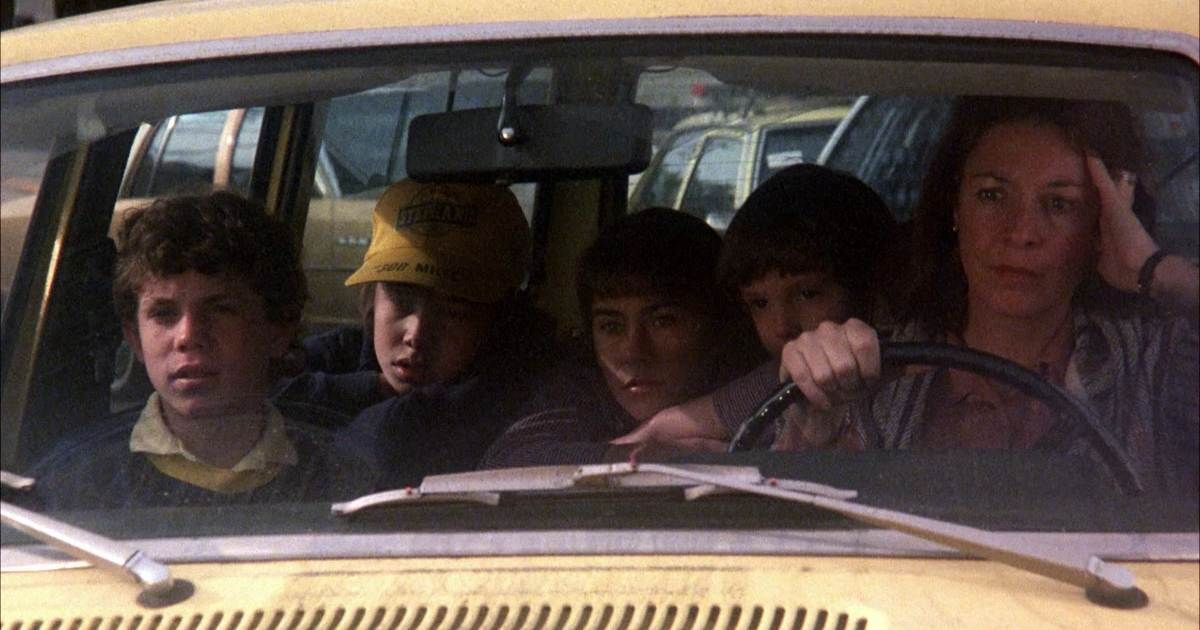
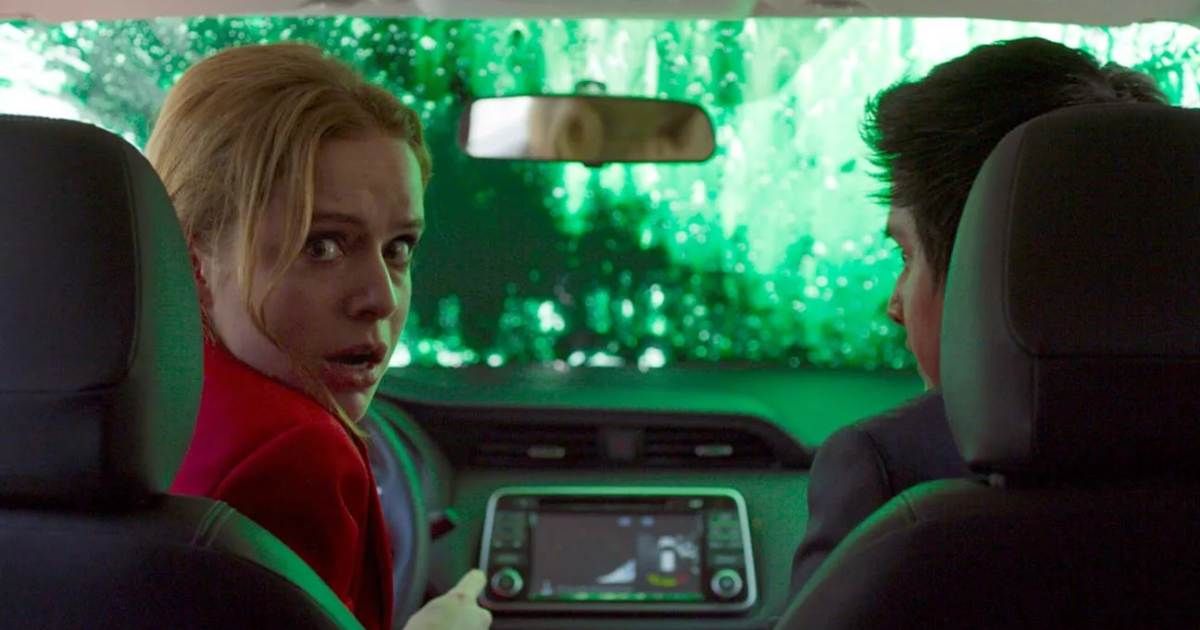
Comments
Post a Comment